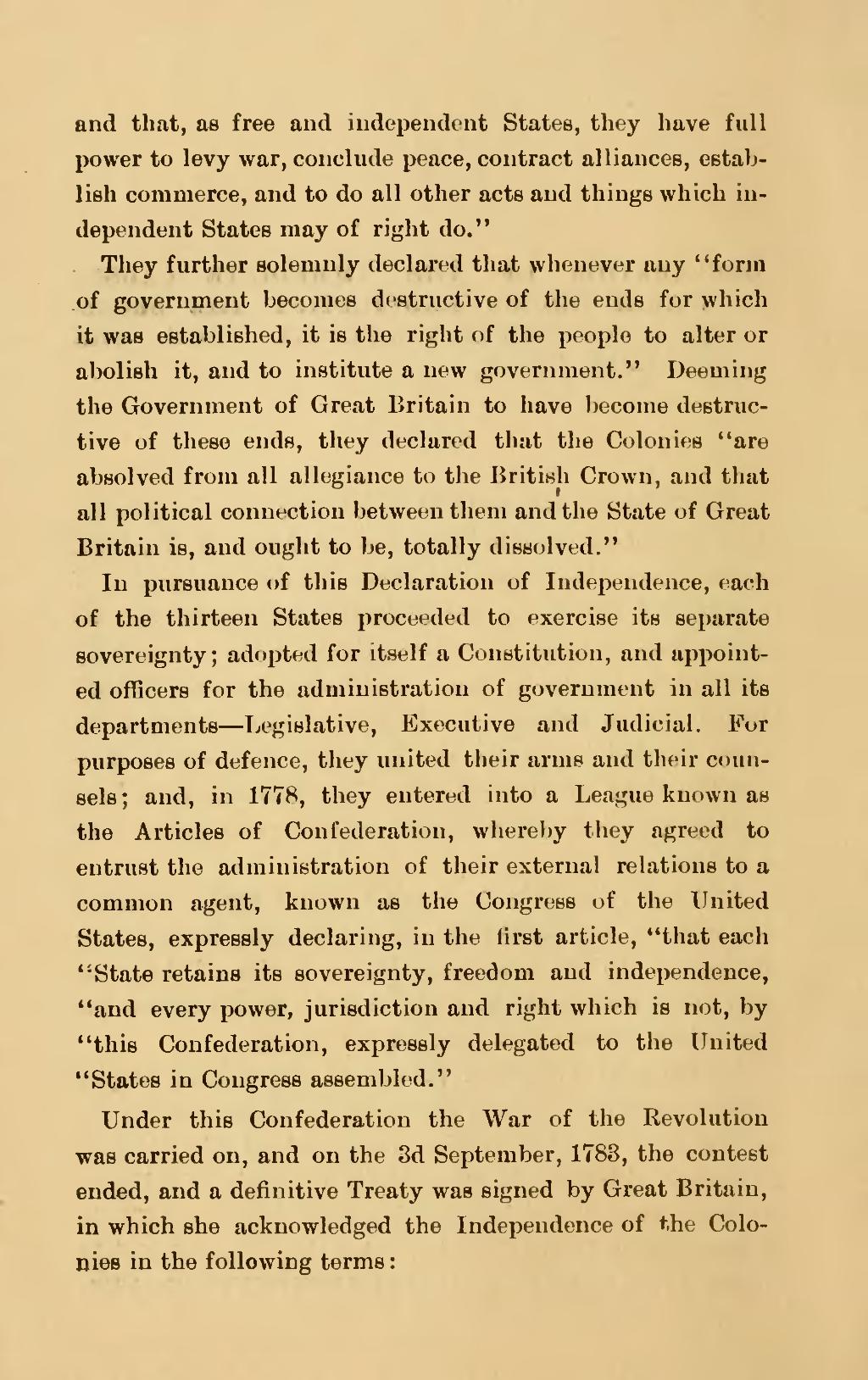and that, as free and independent States, they have full power to levy war, conclude peace, contract alliances, establish commerce, and to do all other acts and things which independent States may of right do."
They further solemnly declared that whenever any "form of government becomes destructive of the ends for which it was established, it is the right of the people to alter or abolish it, and to institute a new government." Deeming the Government of Great Britain to have become destructive of these ends, they declared that the Colonies "are absolved from all allegiance to the British Crown, and that all political connection between them and the State of Great Britain is, and ought to be, totally dissolved."
In pursuance of this Declaration of Independence, each of the thirteen States proceeded to exercise its separate sovereignty; adopted for itself a Constitution, and appointed officers for the administration of government in all its departments—Legislative, Executive and Judicial. For purposes of defence, they united their arms and their counsels; and, in 1778, they entered into a League known as the Articles of Confederation, whereby they agreed to entrust the administration of their external relations to a common agent, known as the Congress of the United States, expressly declaring, in the first article, "that each State retains its sovereignty, freedom and independence, and every power, jurisdiction and right which is not, by this Confederation, expressly delegated to the United States in Congress assembled."
Under this Confederation the War of the Revolution was carried on, and on the 3d September, 1783, the contest ended, and a definitive Treaty was signed by Great Britain, in which she acknowledged the Independence of the Colonies in the following terms:
